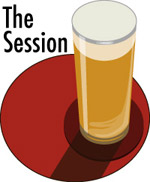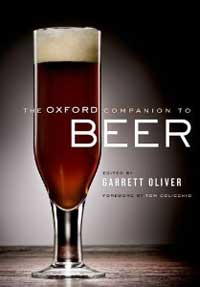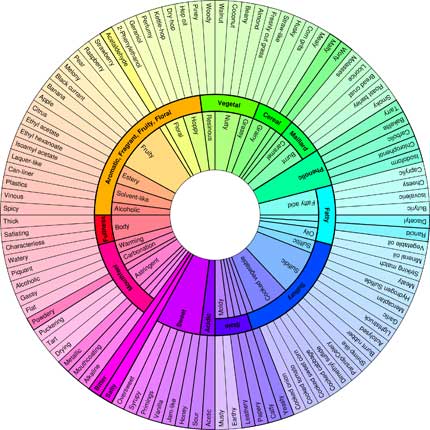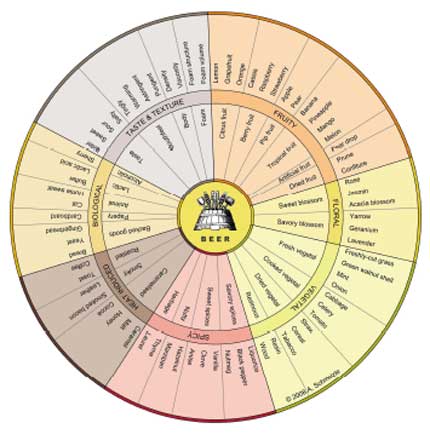“My belief is that many microbrewers lack institutional memory. They don’t know how big brewers have saved this industry.”
– Henry King (1921-2005)
 Even though seven-plus years after I interviewed Henry King for a story in New Brewer magazine I think he’d notice how many “microbrewers” had acquired the political and business savvy he was talking about back then the fact is their fans have a little catching up to do.
Even though seven-plus years after I interviewed Henry King for a story in New Brewer magazine I think he’d notice how many “microbrewers” had acquired the political and business savvy he was talking about back then the fact is their fans have a little catching up to do.
This month the theme for The Session #56 is “Thanks to the Big Boys” (visit Reuben Gray’s The Tale of the Ale for a recap). Big, of course, is relative. Steve Lamond chose to write about Fuller’s. Here in the United States, Boston Beer and New Belgium are far larger, but generally considered small (OK, not by everybody, I get it).
Take a look at this list of the nation’s biggest breweries 50 years ago (courtesy of BeerHistory) and think about what they have in common.
| Anheuser-Busch, Inc. | 8,477,099 |
| Jos. Schlitz Brewing Co. | 5,694,000 |
| Falstaff Brewing Corp. | 4,915,000 |
| Carling Brewing Co. | 4,822,075 |
| Pabst Brewing Co. | 4,738,000 |
| P. Ballantine & Sons | 4,408,895 |
| Theo. Hamm Brewing Corp. | 3,907,040 |
| F & M Schaefer Brewing Co. | 3,202,500 |
| Liebmann Breweries | 2,950,268 |
| Miller Brewing Co. | 2,376,543 |
Right. Most are gone. A graphic reminder that brewing is a business. One that Henry King served well. Consider this story from 1966:
The deaths of 16 men where linked to cobalt salts that Quebec’s Dow brewery put in its beer to promote foam stability. That caused liver damage among frequent drinkers, the brewery’s best customers, and Dow ended up closing.
After King learned the deaths were related to cobalt, he spent 72 hours locked in his office, always on the phone, talking to every brewer in the United States.
“In retrospect, for what I did, I probably could have been sued,” he said. “We gave the brewing industry 72 hours to discontinue the use of cobalt in their products. We never asked a brewer whether he used it or not. We just made him give us an affidavit to give to the government that said on a given date 72 hours later, he was not using cobalt.
“We beat the federal government by seven weeks. We reported the cobalt problem, we were out of it and no longer had production seven weeks before the Food and Drug Administration even got their act together on it.”
He acted decisively not just because it was good for the beer industry, but because it was right. When the nitrosamine proved to be a carcinogen in the 1970s, King again moved swiftly. The USBA spent $1 million buying all 2,600 brands of the beer on the market and had each analyzed.
“Then I asked every brewmaster what they were using,” he said. “Three of them gave me false reports. I called the president of the brewery and told them that they had 36 hours to clean up their act. Boy, were they furious.”
By then, King had put a medical advisory committee into place. The same committee laid the foundation for the USBA’s Alcoholic Beverage Medical Research Foundation, of which King was particularly proud
King retired from the USBA in 1983, and by then he’d been instrumental in getting the small brewers tax differential approved (in 1976). He returned to the industry in 1992, serving six years as executive director of the Brewers Association of America. The BAA, which served smaller breweries, merged with the Association of Brewers in 2005 to form the current Brewers Association.
Small brewers have plenty to thank Henry King for, and in a way he was a gift from the Big Boys.
.



 Also, “We only have 24 bottles (well 23, we need to save one for us to beer geeks to drink at the store). 1 bottle per person.” Plus a little more. Use the link at the top to read it.
Also, “We only have 24 bottles (well 23, we need to save one for us to beer geeks to drink at the store). 1 bottle per person.” Plus a little more. Use the link at the top to read it.